2019 State of the Industry: State of the state associations
Like the member companies they represent, state and regional propane associations across the country are witnessing firsthand the changes taking place within the industry.
Associations must grapple with the impacts these changes bring to their respective operations while they continue to weigh other association-related challenges and issues, some of which have been in play for years.
In this year’s State of the Industry report, LP Gas explores whether this diverse group of 38 state and regional associations is prepared and equipped to navigate today’s changing and competitive energy environment, whether it needs to adjust the framework of its operations and how it can effectively meet the needs of its membership.
“We have been conducting strategic planning sessions regularly to assess this exact question,” says Emma Corning, executive director of the Wisconsin Propane Gas Association, when asked whether state associations must adjust the way they operate today. “We have found that adjusting our operations, even in small ways, has proven beneficial in serving our industry, and it’s also helped in improving the overall health of the association.”
Membership matters
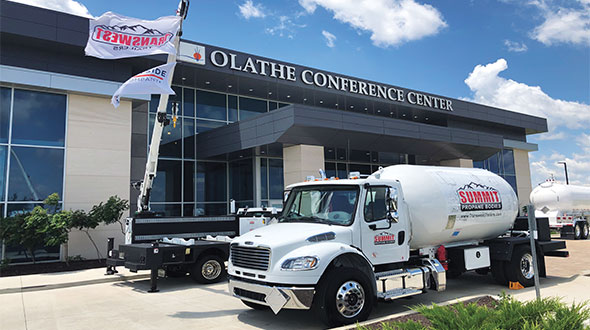
The Arkansas, Oklahoma, Missouri and Kansas associations will host the Mid-States Propane Expo on June 8-11, 2020, in Branson, Missouri. Photo courtesy of Missouri Propane Gas Association
When it comes to membership, Wisconsin is like most of the associations interviewed for this story: It faces declines in propane marketer members. With membership dues serving as a primary revenue source for associations, the financial side of their operations can take a hit.
The most noted reason for this downward trend in marketer membership is mergers and acquisitions, which not only tighten the member pool but also impact event attendance and volunteer board member and committee member involvement.
The consolidation of the industry has an impact on state and regional associations from both a financial and human resources perspective, says Lesley Garland, vice president of state affairs at the National Propane Gas Association (NPGA), who formerly served as the president and CEO of the Western Propane Gas Association.
“You used to have so many smaller, independent companies that would be able to participate in association activities, whether in general, coming to board meetings or conventions, or showing up at a state capital, city council or county commissioners meeting to talk about a propane issue,” Garland says. “You don’t have as many people to participate because the companies consolidated with a larger company.”
The Propane Gas Association of New England has seen about 10 acquisitions per year for the last several years, offset by one to three small startups a year, says Leslie Anderson, its president and CEO.
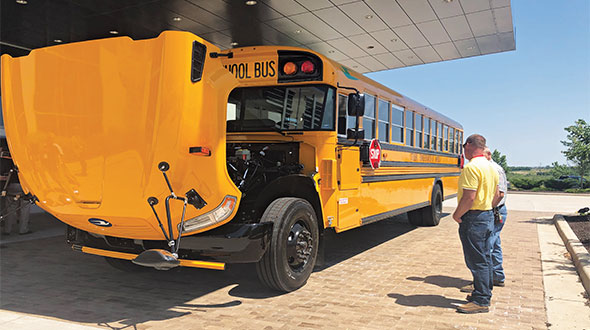
Autogas – the rise of propane school buses in particular – is making inroads in some states. Photo courtesy of Missouri Propane Gas Association
“With the acquisitions comes a decrease in training opportunities for associations because most of the larger companies do their training in-house, so it does affect overall training revenue, which is usually a big portion of an association’s income,” she says.
Tom Osina has worked with the West Virginia Propane Gas Association (WVPGA) since 1985. He also recalls more independent marketers operating in the 1980s and ’90s before multistate marketers began to aggressively acquire companies. Of Osina’s 15 marketer member companies, nine are independents, but he says multistate marketer locations comprise the majority of companies selling propane in West Virginia. He cites volunteer involvement and financial limitations as key challenges.
“What I end up having to do to get members to meetings, to schools, to be aware of legislative concerns is I just have to be more aggressive in terms of how I reach out to them,” says Osina, a part-time contract employee for the WVPGA who runs an association management company, on the importance of what he calls “member touches.”
The “real issue,” Dan Binning of the Colorado and New Mexico propane gas associations says, is galvanizing members to participate. He visits nonmembers each summer and also recognizes the need for current members to educate nonmembers about the advantages of association membership.
State association leaders cite a long list of membership benefits, including advocacy, legislative and regulatory monitoring, safety and training initiatives, industry communications, networking, and scholarship opportunities.
“The more members who participate the better because the associations only have so much money,” Binning says.
Not far from Binning’s territory, the Rocky Mountain Propane Association (Idaho, Montana, Utah and Wyoming) is proving an exception to the membership-decline trend. Tom Clark, the executive director, says the association has seen a 30 percent increase in membership over the past three years. He cites communication of services and industry outreach as keys to success.
“The industry and membership own the association,” Clark says. “Change is occurring everywhere throughout the industry. Our ability to be flexible allows the membership to lead the association in the direction for the best interest of the industry.”
Some states like North Carolina and Wisconsin are placing their efforts on how best to serve their existing membership instead of seeking ways to recruit new members.
“If you have a good association, people are going to want to be a member. If you have to beg them to be a member, then you probably won’t want them to be a member anyway,” says John Jessup, president and CEO of the North Carolina Propane Gas Association. “We do the best we can. We obviously look at what we’re doing to make sure that we’re serving the needs of our members. Some people just don’t want to join or some are too small; they just don’t have enough revenue to be a member.”
‘Major’ losses
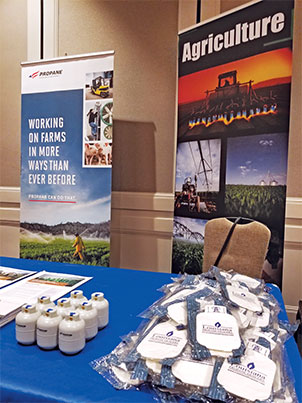
The Louisiana Propane Gas Association helps to provide members with networking opportunities and industry communications. Photo courtesy of Louisiana Propane Gas Association
Compounding state and regional association membership-related struggles was the decision by two national propane marketers in 2017 to withdraw their NPGA membership.
Ferrellgas and Suburban Propane, the industry’s second- and third-largest propane marketers, respectively, cited philosophical differences, concerning minimum membership standards and the NPGA’s state affiliation agreement, as reasons for pulling their membership. By withdrawing from NPGA, the companies were not permitted to remain members of the affiliated state and regional associations in which they do business.
Without the two majors, the state and national associations are losing hundreds of thousands of dollars annually, as well as employee contributions on various committees.
“Ferrellgas and Suburban Propane were valuable members of the industry association community,” Garland says. “When both of those companies made their decisions to drop their membership, a number of state associations lost board members, officers, valuable contributors to committees and valuable people who would go to the capital to advocate. We would love to have them back participating.”
Other state association executives expressed the same desire for Ferrellgas and Suburban Propane to reinstate their membership statuses.
Binning in Colorado and New Mexico, Jessup in North Carolina and Osina in West Virginia specifically noted the financial hit their states took by losing the two companies.
“Losing major members in the past few years has an outsized impact on smaller states too, and I know they are looking for solutions,” acknowledges Steve Ahrens, executive director of the Missouri Propane Gas Association. “Some are considering either a state PERC or a merger with a nearby state association to ensure an acceptable level of service to both members and marketers.”
Considerations for improvement
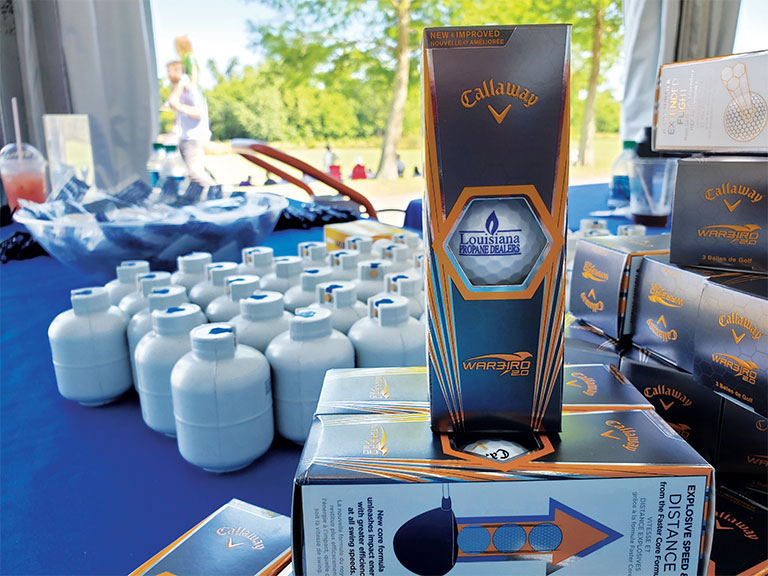
The Louisiana Propane Gas Association helps to provide members with networking opportunities and industry communications. Photo courtesy of Louisiana Propane Gas Association
The answers to many of the issues state associations face aren’t always immediately known, and they may differ based on an association’s respective situation.
In November, NPGA held its annual Leadership Summit in Washington, D.C., where state and regional propane association leaders gathered to discuss challenges and best practices. They welcomed Bob Harris, a certified association executive (rchcae.com), who offered ideas about association trends, board roles, risk awareness and improving strategic planning.
As part of his outreach to associations nationwide, Harris has touched on their need to focus on the big picture and highlight the overall value of the association for the public’s benefit – more jobs, higher standards, an improved economy.
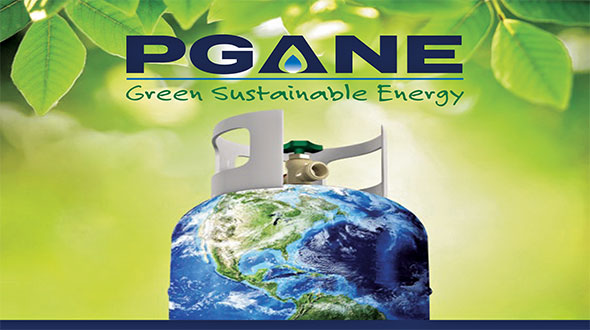
PGANE says the industry must spread the “green” propane message. Photo courtesy of PGANE
“Nearly every association has significant outcomes benefiting their sector and the public,” he writes in one of his papers.
Harris also has shared ideas about technology platforms to support member needs; committee alignment and the need to eliminate unproductive committees; making good use of the association’s volunteer workforce; abandoning tasks to improve focus and value; and creating a network of association ambassadors to improve membership retention. He’s even asked associations to consider a name change as a way to transform their image by replacing the word “association” with “partnership,” “council,” “institute” or “alliance.”
In addition to Wisconsin’s strategic planning sessions and its operational adjustments, other state propane associations are exploring ways to improve their operations.
“Our board made a decision four years ago to revamp the makeup of the board, with fewer members and more involvement,” says Ahrens in Missouri. “They have directed us to spend less time engaged in events that we’ve always done and more time on items that have the potential to move the needle for greater safety, more gallons and a diversity of burner-tip uses.”
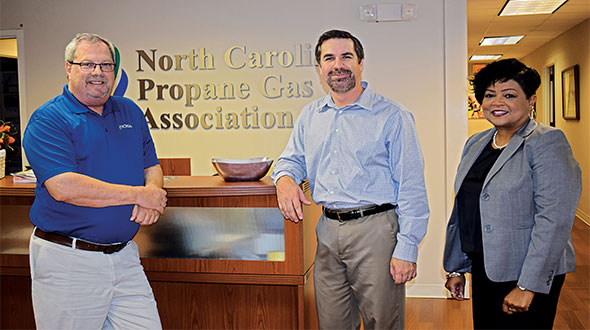
North Carolina Propane Gas Association leaders are, from left, David Donahue, John Jessup and Beverly Dodd. The association is focusing efforts on workforce development and autogas. Photo by Brian Richesson
The Louisiana Propane Gas Association (LPGA) added an “affiliate” membership tier, which includes companies affiliated with the industry that don’t fall in the “dealer” or “associate/supplier” member category. These companies receive all of the association’s benefits except for voting rights.
Currently, 59 of LPGA’s 96 member companies fall under this tier.
Wisconsin is also exploring opportunities for new membership categories, as well as a business partnership program to maximize relationships with current members who are loyal supporters of the association, Corning, the executive director, says.
Greg Noll, executive vice president of the Propane Marketers Association of Kansas (PMAK), says associations must be willing to adjust to better meet the needs of members. As an example, Noll says, PMAK now accepts credit cards and online payments for goods and services when it didn’t several years ago. It also expanded training opportunities around the state to allow members to attend training closer to home.
STATE LEADERS RESPOND
On association and industry challenges, state leaders also say …

Williams
“The electrification of everything movement is becoming much more aggressive and a bigger obstacle than even natural gas has been. It is ramping up to the point where Michigan is actually in a similar predicament as national PERC. We’re looking to figure out how to change some of our messaging and outreach – not be defensive on electrify everything but having a strategy to go on the offensive.”
– Derek Dalling, Michigan and Ohio propane gas associations
“We need to adapt our marketing to fit the current political environment. We need to position propane as the alternative fuel of choice and promote ourselves as environmentally friendly.”
– Jonathan Williams, Mid-Atlantic Propane Gas Association
“New vendors wanting to ‘hit and run.’ Vendor relationships with retailers take years to grow. Jumping in and out of association membership is a challenge to manage.”
– Tom Clark, Rocky Mountain Propane Association
“Our industry is changing with the next generation in line to take over their family business and new people coming into the industry from the outside. The PAPGA board of directors recognized there is a difference in the preferences and habits of each generation and formed the GeneratioNext Committee (generationextpropane.com). Our younger industry leaders have brought new ideas and energy to the association.”
– Shelby Bell, Pennsylvania Propane Gas Association

Bell
“Different things that would harm the industry have brought the industry together to fight together. Sometimes the best thing for an association is a crisis. Legislative victories have really given some optimism to members to stick together and continue to fight together.”
– Derek Dalling, Michigan and Ohio propane gas associations
“There’s always someone out there you can teach a little more about propane than they already know.”
– Randy Hayden, Louisiana Propane Gas Association
“The onslaught of challenges in our industry has moved from the state level to the town level. This is challenging to track and combat. We are seeing trends where businesses and products are legislated out of business. … We are already seeing proposals that threaten our product. We must move from defense to offense, and states can’t do this on their own. We need support at the national level.”
– Leslie Anderson, Propane Gas Association of New England
Also read: 5 takeaways from discussions with state propane associations
















